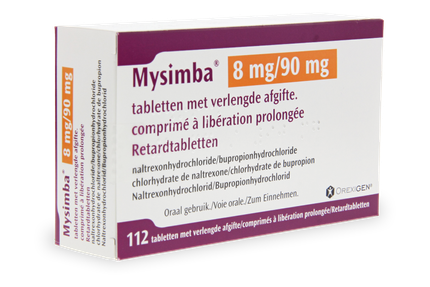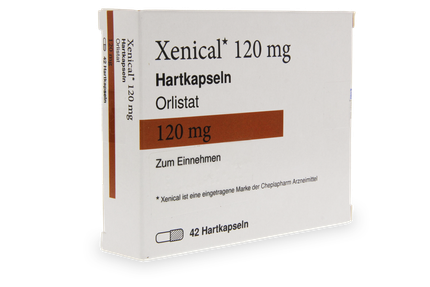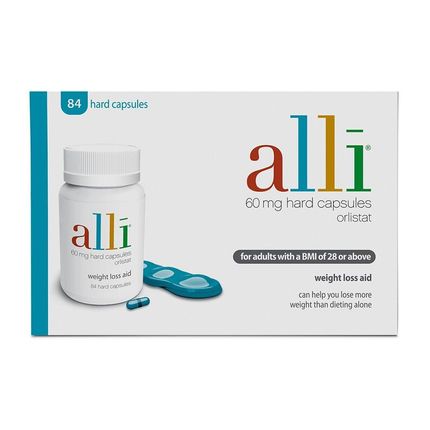

Want to beat menopausal weight gain? Learn how to control your weight from a menopause specialist!
Weight gain is one of the biggest challenges women going through menopause have to face. Many middle-aged women notice they can’t seem to stop those pounds from sneaking on. Although gaining some weight is not necessarily a bad thing, it can impact your body image and self-esteem. And that’s something you have to deal with. Can you learn how to control your weight and feel happy in your skin? Absolutely! Menopause specialist Suzanne Rouhard shares her top tips to beat menopausal weight gain.
Weight gain is the worst part of menopause for 90 percent of the women I see in my practice. For some, it’s even worse than hot flashes, disrupted sleep and rage. They just don't feel like themselves anymore. You can imagine what that does to a woman's self-esteem.
Body image
Many women in their forties and fifties suddenly find themselves gaining at least six to ten pounds – sometimes more – even if they maintained a stable weight throughout their lives. Women with a higher BMI before going through menopause generally gain weight too, about the same amount as women who used to have a stable weight.
This physical change can affect your body image and self-esteem. With all the emotional turbulence that the menopausal transition brings, this can be a lot to deal with. It may feel like you're gaining weight out of nowhere. Or you may notice that your once flat belly is starting to resemble a muffin top.
Menopausal weight gain serves a purpose
Are you really gaining weight out of nowhere? It may feel that way, especially when your eating and exercise habits haven't changed. In your younger years, when you slipped up on your diet, paying a bit more attention to your lifestyle was enough to get back on track and maintain a healthy weight. But now, you’re watching the calories and exercising, and yet the weight is not coming off.
Don’t worry! Gaining a few pounds, particularly around the abdomen, serves a purpose. Belly fat is one of your body’s backup systems for when your ovaries stop producing female sex hormones. Belly fat cells generate their own local production of oestrogen, which also has benefits for your skin. Mind you, if you're putting on a lot of weight, there may be an underlying cause that you should get checked out.
Want to beat menopausal weight gain? You can!
Menopause comes with a lot of physical changes, which are often caused by a temporary imbalance of hormones. Hormones also play a key role in weight loss and weight control.
Visualise that your life is a ship, and you are the captain of this ship. In the past, the sea used to be calm, but now it has become wilder. How well are you able to steer your ship through these rough waters? In other words, is your general health good enough to weather the storm?
Consider your health. This is where your opportunities lie. Maintaining good general health puts you in a better position to lose weight. It will take some more effort than you’re used to, but it's absolutely possible to get back to your original body size.
Different imbalances
Beating menopausal weight gain is not about counting calories. This is because menopausal weight gain is not only related to hormonal fluctuations. Often there are several imbalances at play. These imbalances should be addressed, possibly along with other factors, such as insulin resistance, low-grade inflammation, chronic stress, thyroid function, disrupted action of a hormone that sends a signal to your brain when you are satiated or hungry, or unhealthy eating habits.
The oestrogen that your ovaries produced before menopause protected you from these factors. This is the reason you did not put on weight (or not so quickly).
Want to lose weight? Break the vicious cycle!
What makes losing weight during this stage of life so difficult is that all these factors are connected. The more body fat you have, the more imbalanced your hormones can become. It’s a vicious cycle. This means you need to find a way to break the cycle. But how?
The first step is to find out if there are any underlying mechanisms. This can be different for everyone. A menopause specialist can provide support and create a personal plan that is effective and feasible.
After all, what works best for you depends on your situation and symptoms. But there are also tips that apply to all menopausal women. Here are some of them:
Tip 1: Train the larger muscle groups
Muscle mass decreases after the age of 30. All cells, including muscle cells, have their own ‘power plants’ called mitochondria. They play a crucial role in your fat burning metabolism. The thinner the muscle, the fewer mitochondria it contains.
It’s actually as simple as adding two and two together: the more muscles, the more mitochondria, the easier it is to lose weight. And guess what, your body also burns energy (and therefore fat) while at rest. This is referred to as resting metabolic rate, or RMR.
So, if you want to see results quickly, then train your large muscle groups twice a week (upper legs, buttocks and lower back). This doesn't necessarily mean going to the gym twice a week. Working out to a YouTube video with a resistance band can also be very effective.
Tip 2: Make it a daily priority to carve out moments to relax
When you are busy, stressed or don’t get enough rest, your body produces more cortisol. Cortisol triggers the release of sugar (glucose) from your liver so that you have fast energy to deal with stressors. What’s more, it also makes you crave junk food and sugary snacks. It goes without saying that all this does not do your weight any favours.
Balance is key. It is important to create balance in the nervous system, to counterbalance tension with relaxation. It’s about fine-tuning your nervous system's gas pedal and brake pedal.
Take a look at your life. Would you say it is balanced? Do you incorporate 'me time' into your schedule? Or do you treat relaxation as an item on your to-do list, that often gets crossed off the list because of lack of time? Becoming aware of your behaviour is the first step. Then think about things that you find relaxing, and how and when you can start practising them.
Tip 3: Cut back on carbohydrates
To keep your hormones balanced, you need to nourish your body with the right nutrients. Therefore, you need to take a critical look at what you eat. A good place to start is to track your food intake with a diet journal.
Write down the number of meals a day (this includes picking and nibbling) and when you eat foods with carbohydrates (bread, crackers, pasta, rice, potatoes, etc.).
Every time you eat carbs, this makes your blood sugar rise fast and drop fast (sugar spikes). This is precisely what you should avoid: stable blood sugar is important for a good hormone balance. Start with replacing fast carbohydrates (such as white bread, white rice and white pasta) with whole grain products. Whole grain products contain slow carbs, which are digested slower. Therefore, they are less likely to cause a rapid spike in your blood sugar.
It’s also a good idea to eat more meals consisting of only fats and protein. For example, a fried egg (fried in butter) with avocado, tomato and asparagus. Your hormones will thank you for it! And it’s also a healthy (and delicious) start of the day. Plus it’s a good way to keep your stomach from growling until noon.
Bon appétit!
Want to beat menopausal weight gain?
It can be frustrating and demoralising when diet and lifestyle changes are not paying off. Supplements, over-the-counter products and medication can help when you’re struggling to lose weight or have reached a weight loss plateau.

Sources
- Simkin-Silverman LR, Wing RR, Boraz MA, Kuller LH. (2003). Lifestyle intervention can prevent weight gain during menopause: results from a 5-year randomized clinical trial. PMID: 14644697.
- Te Morenga L, Mallard S, Mann J. (2012). Dietary sugars and body weight: systematic review and meta-analyses of randomised controlled trials and cohort studies. PMID: 23321486.
- Simkin-Silverman LR, Wing RR. (2000). Weight gain during menopause. Is it inevitable or can it be prevented? PMID: 11004935.
- Tabung FK, Satija A, Fung TT, Clinton SK, Giovannucci EL. (2019). Long-Term Change in both Dietary Insulinemic and Inflammatory Potential Is Associated with Weight Gain in Adult Women and Men. PMID: 31004153.
- Greendale GA, Sternfeld B, Huang M, Han W, Karvonen-Gutierrez C, Ruppert K, Cauley JA, Finkelstein JS, Jiang SF, Karlamangla AS. (2019) Changes in body composition and weight during the menopause transition. PMID: 30843880.
- Lovejoy JC, Champagne CM, de Jonge L, Xie H, Smith SR. (2008). Increased visceral fat and decreased energy expenditure during the menopausal transition. PMID: 18332882.
- Calder PC, Ahluwalia N, Brouns F, Buetler T, Clement K, Cunningham K, Esposito K, Jönsson LS, Kolb H, Lansink M, Marcos A, Margioris A, Matusheski N, Nordmann H, O'Brien J, Pugliese G, Rizkalla S, Schalkwijk C, Tuomilehto J, Wärnberg J, Watzl B, Winklhofer-Roob BM. (2011). Dietary factors and low-grade inflammation in relation to overweight and obesity. PMID: 22133051.
Possibly of interest to you


FAQ
What role do hormones play in weight gain during the menopause?
When hormone levels begin to fluctuate during the menopause, this can affect your weight. In the early years, progesterone decreases more quickly, which leads to oestrogen dominance. And the more oestrogen there is, the more fat the body stores. Oestrogen levels fall during the menopause. As a result, fat storage shifts from the hips and thighs to the stomach. Many women therefore develop a small belly. Your metabolism and muscle tissue also decrease, so you need less energy. If you continue to eat the same food, you will gain weight. More about weight gain.














